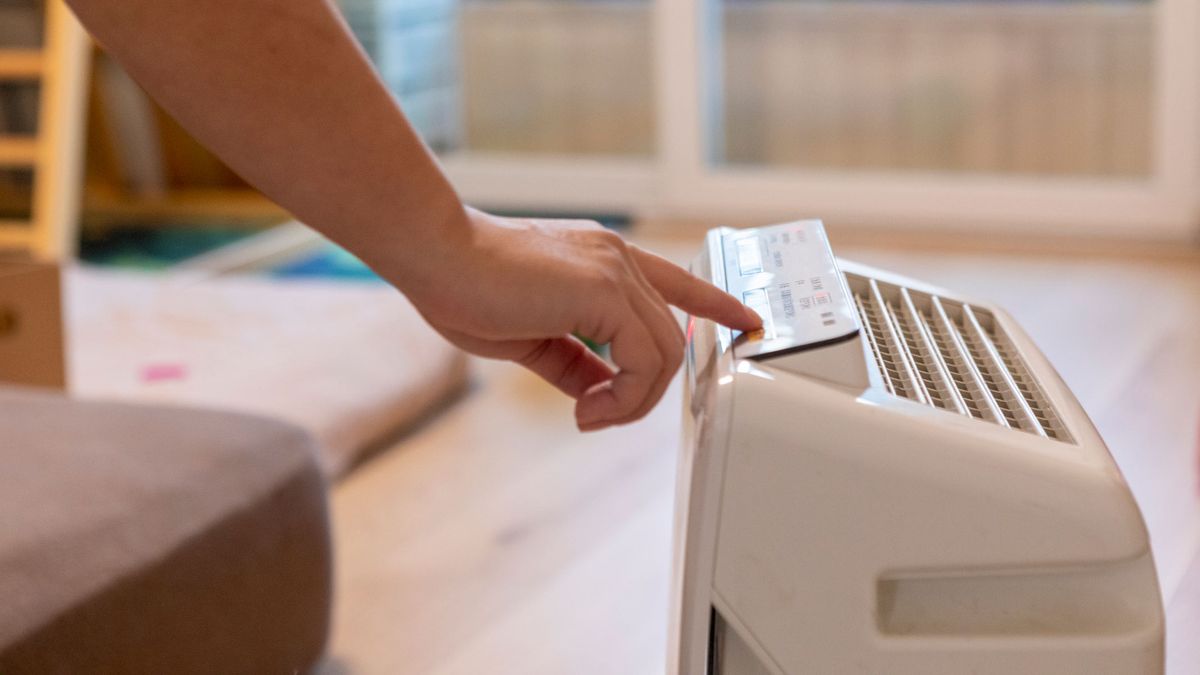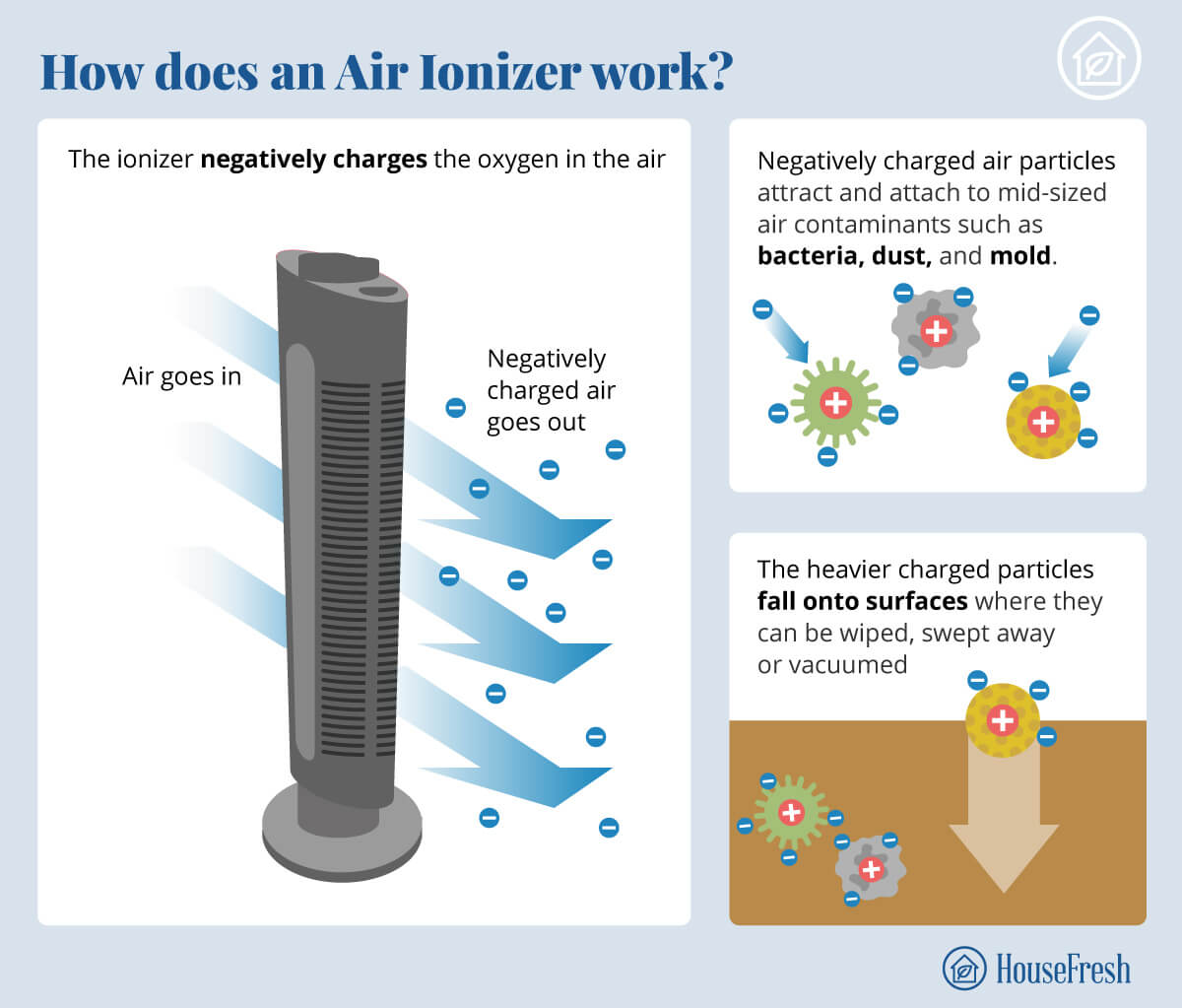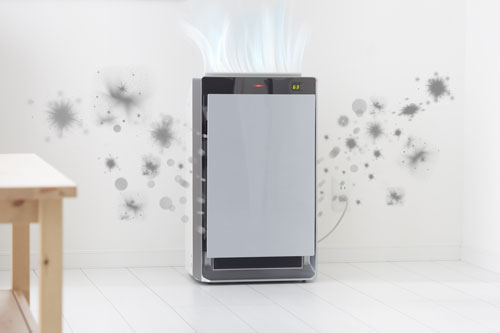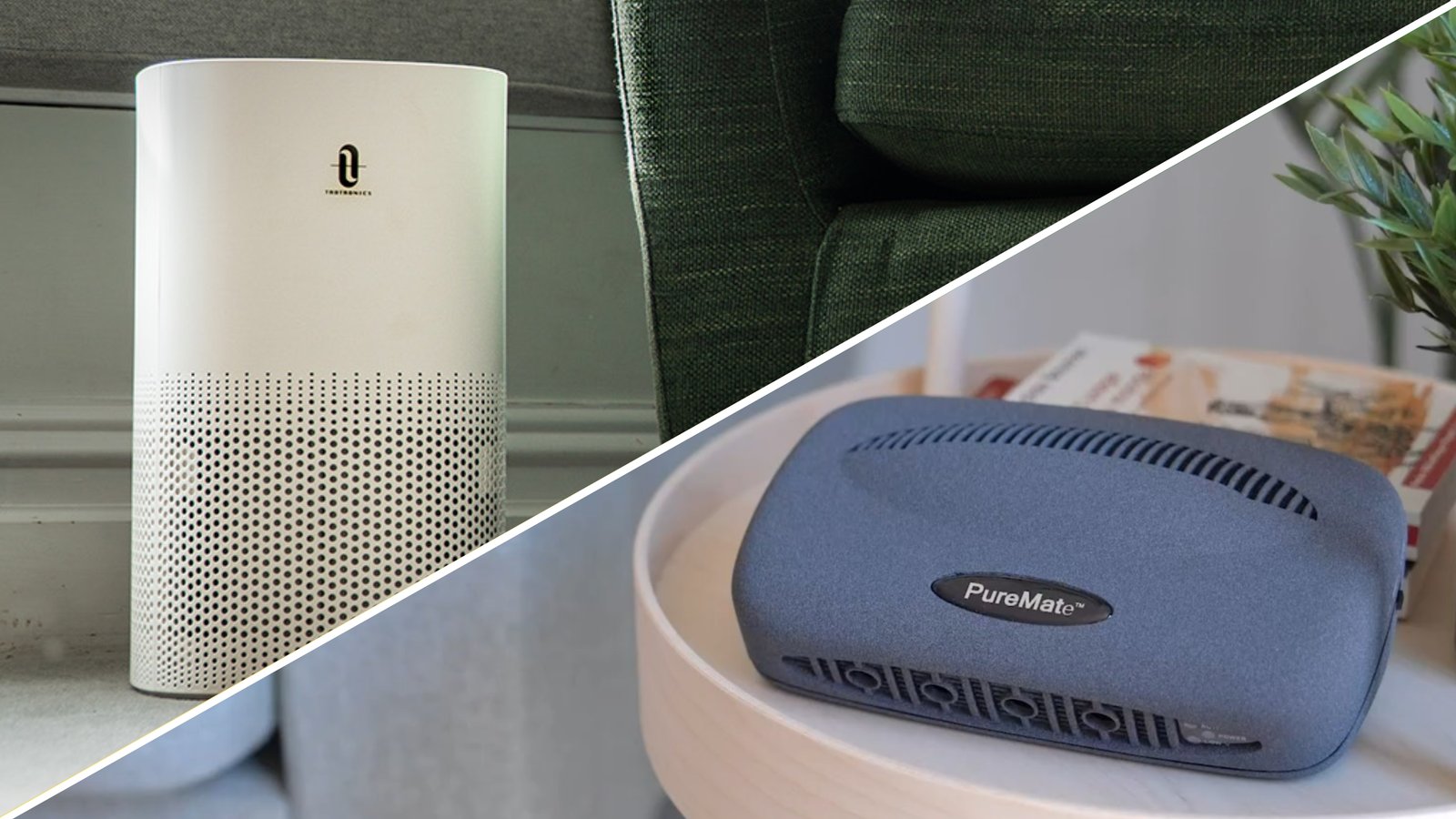Choosing between air purifiers with ionizers and those without can be confusing. Both types have their own benefits and drawbacks.
Air purifiers have become an essential household item for many. They help to keep our living spaces clean and free from pollutants. Yet, not all air purifiers are created equal. Some come with ionizers, while others do not. Understanding the differences can help you decide which type is best for your needs.
This comparison will guide you through the key aspects of each type. You will learn about how they work, their effectiveness, and any potential side effects. By the end, you will have a clearer idea of which air purifier suits your home and lifestyle.
How Air Purifiers Work
Understanding how air purifiers work can help you choose the best one for your needs. This section explains the basic mechanism and key components of air purifiers with and without ionizers.
Basic Mechanism
Air purifiers clean the air by removing pollutants. They use different methods to trap and eliminate particles. Most air purifiers work by drawing air through a filter or a series of filters.
Air purifiers with ionizers use an extra step. They release ions into the air. These ions attach to particles, making them easier to capture. This can help remove even smaller particles.
Key Components
Air purifiers have several key components. These parts work together to clean the air.
- Filters: Filters trap particles. HEPA filters are very effective. They can capture tiny particles like dust, pollen, and pet dander.
- Fans: Fans pull air through the filters. This helps clean more air faster.
- Ionizers: Ionizers release negative ions. These ions attach to particles, making them easier to capture. Not all air purifiers have ionizers.
- UV Lights: Some purifiers use UV light to kill germs. This adds an extra layer of protection.
Below is a comparison table of air purifiers with and without ionizers:
| Feature | With Ionizers | Without Ionizers |
|---|---|---|
| Particle Removal | More Efficient | Efficient |
| Filter Requirement | May Require Less Frequent Changes | Requires Regular Changes |
| Ozone Emission | Possible | None |
Choosing the right air purifier depends on your specific needs. Whether you select one with or without an ionizer, both types can significantly improve your indoor air quality.
What Are Ionizers?
Air purifiers can come with or without ionizers. But what exactly are ionizers? Ionizers are devices that release ions into the air. These ions attach to airborne particles, making them heavier. As a result, these particles fall to the ground or get trapped in filters. This process helps clean the air by removing pollutants and allergens.
Ionization Process
The ionization process is simple yet effective. Ionizers create negative ions using electricity. These negative ions then bond with positive ions in the air. Positive ions are often pollutants like dust, pollen, and smoke. When these ions bond, they become neutral and are no longer airborne.
This process can reduce indoor air pollution. It helps to improve air quality. But it’s important to know that ionizers do not remove particles completely. Instead, they make them easier to capture with filters or settle on surfaces.
Types Of Ionizers
There are different types of ionizers available. Each type has its own benefits and uses. Let’s look at the main types:
- Corona Discharge Ionizers: These ionizers use a high-voltage discharge to create ions. They are effective but can produce ozone, which is harmful in high amounts.
- Cold Plasma Ionizers: These ionizers use a low-temperature plasma to create ions. They produce fewer harmful byproducts and are safer for indoor use.
- Electrostatic Ionizers: These ionizers use an electric field to charge particles. The charged particles are then collected on plates. This type is effective but requires regular cleaning.
Each type of ionizer has its own advantages. Choosing the right one depends on your needs and safety concerns.
Benefits Of Air Purifiers With Ionizers
Air purifiers with ionizers offer unique advantages. They improve indoor air quality significantly. This makes them a popular choice for many households.
Enhanced Air Cleaning
Ionizers release negative ions into the air. These ions attach to pollutants like dust and pollen. As a result, the pollutants become heavy and fall to the ground.
This process reduces airborne particles. It makes the air cleaner and easier to breathe. Allergy sufferers benefit greatly from this enhancement.
Odor Removal
Air purifiers with ionizers also help with odor removal. They neutralize unpleasant smells from pets, cooking, and smoke. This keeps your home smelling fresh.
The ionizers break down odor-causing molecules. This ensures long-lasting freshness in your living spaces.

Credit: www.livescience.com
Drawbacks Of Ionizer Air Purifiers
Ionizer air purifiers can produce ozone, which may cause respiratory issues. They are less effective in removing larger particles compared to traditional air purifiers.
Ionizer air purifiers can offer some benefits. They charge particles in the air, causing them to stick to surfaces. But they also come with drawbacks. Two main issues are ozone emission and maintenance requirements.Ozone Emission
Ionizer air purifiers often produce ozone. Ozone can be harmful to health. It can irritate the lungs. People with asthma or breathing issues may have more problems. Ozone can also cause chest pain and shortness of breath. Even low levels of ozone can be dangerous. It is important to consider this risk.Maintenance Requirements
Ionizer air purifiers need regular cleaning. The charged particles fall onto surfaces. This means more dusting and cleaning for you. The ionizer plates also need cleaning. If not cleaned, they can stop working well. This adds to your regular chores. Regular maintenance can be time-consuming. It can also add to the cost of using an ionizer air purifier. “`Benefits Of Air Purifiers Without Ionizers
Air purifiers are essential for clean air. They help reduce pollutants and allergens in your home. Air purifiers come with or without ionizers. Both types have benefits, but today we will focus on the benefits of air purifiers without ionizers. These devices offer safe operation and low maintenance.
Safe Operation
Air purifiers without ionizers are safe to use. They do not produce ozone, which can be harmful. Ozone can irritate the lungs and worsen asthma. These air purifiers use filters to trap dust and allergens. This makes them safe for everyone, including children and pets. You can run them all day without worry.
Low Maintenance
Maintaining air purifiers without ionizers is easy. They have fewer parts to clean or replace. Most use HEPA filters that only need changing every few months. Some models even have washable filters. This reduces costs and effort. You spend less time maintaining your air purifier and more time enjoying clean air.

Credit: housefresh.com
Comparing Performance
Comparing the performance of air purifiers with ionizers against those without is essential. Understanding the efficiency levels and coverage area helps in making a better decision. Let’s dive into these aspects to see how they differ.
Efficiency Levels
Air purifiers with ionizers release charged particles. These particles attach to pollutants, making them easier to capture. This process can improve air quality. But, some studies suggest ionizers might produce ozone. Ozone can be harmful in high amounts.
Purifiers without ionizers use filters. HEPA filters are common. They trap particles like dust and pollen. These filters are very effective. They do not produce ozone. Choosing between them depends on individual needs and concerns.
Coverage Area
Coverage area is another key factor. Ionizer purifiers can cover larger spaces. They disperse ions throughout the room. This makes them suitable for bigger areas.
Purifiers without ionizers usually have a limited range. The airflow is restricted to the filter’s capacity. They work well in smaller spaces. For larger rooms, a more powerful model might be needed.
Understanding these differences helps in selecting the right air purifier. Efficiency and coverage area are vital considerations. Choose wisely based on your specific needs.
Choosing The Right Air Purifier
Choosing the right air purifier can be a daunting task. With so many options available, it’s essential to understand the differences. One key aspect to consider is whether the purifier has an ionizer or not.
Factors To Consider
When selecting an air purifier, several factors can influence your decision:
| Factor | With Ionizer | Without Ionizer |
|---|---|---|
| Effectiveness | Can reduce pollutants and allergens | Primarily uses filters to clean air |
| Maintenance | Requires regular cleaning of ionizer plates | Filter replacements are needed periodically |
| Cost | Generally more expensive | Often more affordable |
| Noise Level | Can be quieter | May produce more noise due to fan |
Personal Preferences
Your personal preferences play a crucial role in choosing the right air purifier:
- Health Concerns: Those with allergies or asthma may benefit more from ionizers.
- Budget: If cost is a concern, non-ionizer purifiers might be a better choice.
- Maintenance: Consider how much upkeep you’re willing to do. Ionizers need regular cleaning.
- Noise Sensitivity: If you prefer quieter devices, ionizer models could be more suitable.
By considering these factors and your personal preferences, you can make an informed decision. Whether you choose an air purifier with an ionizer or without, improving your indoor air quality is the ultimate goal.

Credit: vanportmech.com
Frequently Asked Questions
What Is An Ionizer In Air Purifiers?
An ionizer emits negative ions into the air. These ions attach to airborne particles, making them heavier. The particles then fall to the ground or stick to surfaces.
Do Ionizers Improve Air Quality?
Yes, ionizers help remove pollutants from the air. They reduce allergens, dust, and smoke. This can improve indoor air quality significantly.
Are Air Purifiers With Ionizers Safe?
Air purifiers with ionizers are generally safe. However, some may produce ozone, which can be harmful. It’s essential to choose a model with low or no ozone emission.
How Do Ionizers Compare To Hepa Filters?
Ionizers trap particles by making them heavier. HEPA filters physically capture particles. HEPA filters are generally more effective for large particles, while ionizers can target smaller ones.
Conclusion
Choosing between air purifiers with ionizers and without depends on your needs. Ionizers can help reduce airborne particles. But some people prefer non-ionizer purifiers for safety. Consider your health concerns and home environment. Both types of purifiers improve air quality.
Just pick the one that suits your lifestyle best. Always check product reviews and consult experts if unsure. Clean air is vital for a healthy home. Make an informed decision to breathe easier.
Rakib Sarwar is a Registered Pharmacist and a reputed health and wellness blogger. He has a great interest in Air purifiers.
